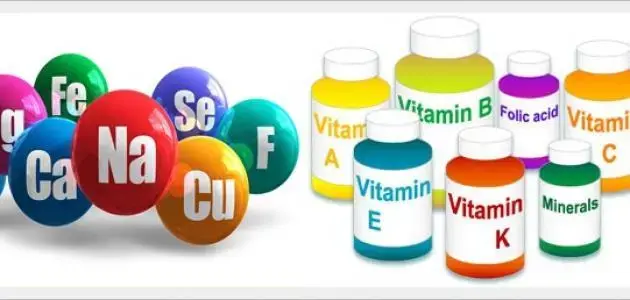Vitamins are a group of essential nutrients your body needs to work properly. They’re crucial for cell growth and keeping everything running smoothly. There are 13 key vitamins, split into two groups:
- Fat-soluble vitamins: A, D, E, and K. These are stored in your body’s fat tissues and are easier to absorb when you eat foods with fat.
- Water-soluble vitamins: Vitamin C and the B vitamins (like B1, B2, B3, B5, B6, biotin, folate, and B12). Most of these aren’t stored in the body and any extra leaves through urine, except for B12, which can be stored in the liver for years.
Each vitamin has an important job, and not getting enough of any can cause health problems. Luckily, most people get what they need by eating a balanced diet full of veggies, fruits, whole grains, and lean protein. But some people—like seniors or pregnant women—might need supplements, as recommended by their doctor.
Why Vitamins Matter & Where to Find Them
Vitamin A
Vitamin A plays a big role in vision and helps your immune system fight off infections. You can find it in:
- Liver
- Milk fortified with vitamin A
- Orange fruits and veggies like carrots, cantaloupe, and sweet potatoes
- Dark leafy greens like spinach and kale
B Vitamins
The B vitamins help your body turn food into energy and are involved in making red blood cells. They include B1 (thiamin), B2 (riboflavin), B3 (niacin), B5, B6, biotin, folate, and B12. Good sources include:
- Whole grains like wheat and oats
- Meat and poultry
- Eggs
- Fish and seafood
- Dairy products
- Leafy green vegetables
- Beans and peas
Vitamin C
Vitamin C helps keep tissues healthy, including bones, gums, and blood vessels. It also aids wound healing and fights infections. Foods rich in vitamin C include:
- Citrus fruits like oranges
- Red bell peppers
- Cantaloupe
- Strawberries
- Kiwi
- Tomatoes
- Broccoli
- Cabbage
Vitamin D
Vitamin D is key for strong bones and teeth. Your skin makes it when you get sunlight, and you can also get it from food. It helps your body absorb calcium. Sources include:
- Milk fortified with vitamin D
- Fortified cereals
- Egg yolks
- Fish
- Liver
Vitamin E
Vitamin E protects your cells from damage and supports healthy red blood cells. You can find it in:
- Whole grains
- Wheat germ
- Nuts and seeds
- Leafy greens
- Vegetable oils like sunflower, canola, and olive oil
- Egg yolks
Vitamin K
Vitamin K helps your blood clot and prevents bleeding. It’s found in:
- Leafy green vegetables
- Dairy products like milk and yogurt
- Broccoli
- Soybean oil
Daily Vitamin Needs
Here’s a quick guide to the daily vitamin amounts recommended for adults and kids over 4 years old:
| Vitamin | Daily Amount |
|---|---|
| Vitamin A | 5,000 IU |
| Thiamin (B1) | 1.5 mg |
| Riboflavin (B2) | 1.7 mg |
| Niacin (B3) | 20 mg |
| Vitamin B5 | 10 mg |
| Vitamin B6 | 2 mg |
| Biotin (B7) | 300 mcg |
| Folate (B9) | 400 mcg |
| Vitamin B12 | 6 mcg |
| Vitamin C | 60 mg |
| Vitamin D | 400 IU |
| Vitamin E | 30 IU |
| Vitamin K | 80 mcg |
Signs You Might Be Low on Vitamins
Not getting enough vitamins can affect your health and cause symptoms like tiredness and headaches. Some signs of specific deficiencies include:
- Tingling or numbness in hands or feet — could mean a B vitamin deficiency
- Tiredness, weakness, or muscle pain — might indicate low vitamin D
- Memory problems — possibly a B12 deficiency
- Mouth sores, fatigue, or gray hair — could point to low folate
- Night blindness, bumps on the back of your arms, or flaky scalp — might be a vitamin A shortage
Vitamin Overdose Can Be Harmful Too
While vitamins are great for you, taking too much can cause problems. Fat-soluble vitamins like A and D are especially risky since they’re stored in your body. Water-soluble ones are usually flushed out, but high doses of vitamin C and some B vitamins can still cause issues. For example:
- Too much vitamin A can cause headaches, rashes, rough skin, hair loss, dry skin, and cracked lips.
- Excess vitamin D can lead to high calcium levels, causing nausea, vomiting, excessive urination, itching, weakness, and kidney stones.
- Very high doses of vitamin C might cause nausea, diarrhea, headaches, gas, or kidney stones.
Leave a comment
Your email address will not be published. Required fields are marked *




